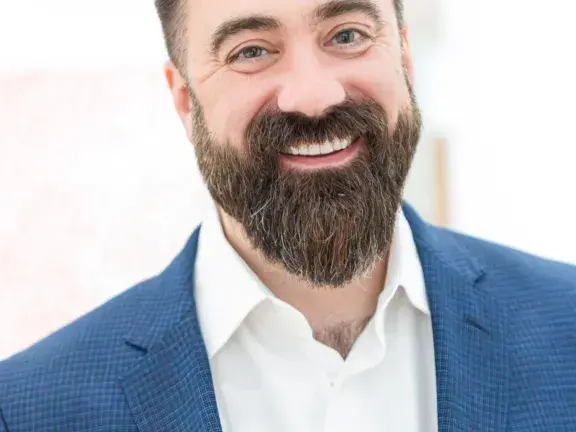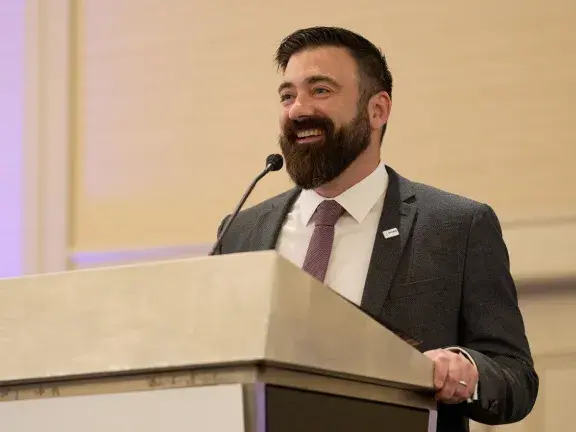
Register by October 17 to Secure Your Spot!
| Registration Type | Member Price |
|---|---|
| Early Bird Registration (Sept. 11-Oct.3) | $750 |
| General Registration (Oct. 4-Oct.17) | $850 |
| Registration Type | Member Price |
|---|---|
| Early Bird Registration (Sept. 11-Oct.3) | $750 |
| General Registration (Oct. 4-Oct.17) | $850 |
| Registration Type | Member Price | Non-Member Price |
|---|---|---|
| Early Bird Registration (Sept. 11-Oct. 3) | $750 | $850 |
| General Registration (Oct. 4-Oct.17) | $850 | $950 |
Not a member? We'd love to have you join us for this event and become part of the Chorus America community! Visit our membership page to learn more, and feel free to contact us with any questions at [email protected].
| Registration Type | Non-Member Price |
|---|---|
| Early Bird Registration (Sept. 11-Oct. 3) | $850 |
| General Registration (Oct. 4-Oct.17) | $950 |
Think you should be logged in to a member account? Make sure the email address you used to login is the same as what appears on your membership information. Have questions? Email us at [email protected].
| Registration Type | Price |
|---|---|
| Individual Session | $30 each |
| All Four (4) Sessions | $110 |
*Replays with captioning will remain available for registrants to watch until November 1, 11:59pm EDT.
Member Professional Development Days are specially designed for Chorus America members. If you're not currently a member, we'd love to welcome you to this event, and into the Chorus America community! Visit our membership page to learn more about becoming a member of Chorus America, and please don't hesitate to reach out to us with any questions at [email protected].
| Registration Type | Price |
|---|---|
| Individual Session | $30 each |
| All Four (4) Sessions | $110 |
*Replays with captioning will remain available for registrants to watch until November 1, 11:59pm EDT.
| Registration Type | Price |
|---|---|
| Individual Session | $30 each |
| All Four (4) Sessions | $110 |
*Replays with captioning will remain available for registrants to watch until November 1, 11:59pm EDT.
Member Professional Development Days are specially designed for Chorus America members. If you're not currently a member, we'd love to welcome you to this event, and into the Chorus America community! Visit our membership page to learn more about becoming a member of Chorus America, and please don't hesitate to reach out to us with any questions at [email protected].

Speaking to attendees at Chorus America's 2025 Conference in St. Louis, president and CEO Christopher Eanes shared his thoughts on how choral music and the choral community can meet the moment in which we find ourselves. Drawing on seven months of experience in his role, he delivered a realistic assessment of current challenges and an energizing call to action for the road ahead.
Friends, it really is one of the most wonderful things about the Chorus America Conference that we begin each day with singing. It had never occurred to me—until I spoke to friends in another sector—that there would be conferences that don't start with singing. Can you imagine the horror? You show up to a big hotel ballroom and people just start talking at you? That sounds terrible.
I feel so lucky to be a part of this community. I attended my first Chorus America conference in 2007, and I’ve only missed two or three conferences since then. This gathering is one of the highlights of the year for me, but never could I have dreamt—nearly 20 years ago, when I first stepped foot in the room in the Los Angeles Biltmore where Alice Parker was speaking—that I would be addressing you today in this capacity. I am honored to have been asked to fill this role, especially when I think about the incredible leaders that preceded me.
Since I’m new to this role, I’m going to take a moment to share some thoughts about what I’ve learned so far.
I’ve been on the job for seven months, and what I’ve seen is a lot of worry.
I think there’s a good chance you entered the room today with some worries. Worries about the world around you; about the government; about your funding; maybe about people who are losing their jobs.
How many of you are worried about your budgets next year? And I bet there are some of you who aren’t even focused on your budgets because you’re worried about the loved ones in your life.
Now here’s the thing: never have I felt so energized or optimistic about our artform.
It’s not that there aren’t things I’m worried about. There are and I am.
But you know what I don’t worry about? I don’t worry about people wanting to sing together, and you know why? There has never been a time in our history when people didn’t sing together.

Singing is so fundamental to being human that it has been present in every culture, in every country, for our entire recorded history – and likely well before. Communal singing is universal; it is a human constant.
Just look at where we are today. Fifty-five million people in the United States alone sing in choirs. That makes it not just the most participatory artform in this country, but one of the most participatory activities that people do.
So, no, I don’t worry about the future of our artform.
As a matter of fact, I think we’re facing a real moment of opportunity.
Because communal singing is universal, it enjoys a few advantages:
First, its fundamental nature is not political.
Second, singing is an analog artform. It requires us to put down our devices and interact with one another. It helps us develop empathy.
And third, singing doesn't require training. Truly, anyone can jump into a song.
This is why singing has changed the world when other art forms couldn’t. In this country alone, consider the communal songs created by enslaved Africans that provided comfort and, in some cases, escape plans. Consider the role that singing played after the assassination of Harvey Milk—in fact launching an entire worldwide movement of gay and lesbian choruses.
Can you imagine those points in history without singing? I cannot.
So here’s what we’re going to do together: we’re going to use singing as the antidote to division. We’re going to use singing to ground people in their communities, to build empathy, and to get people to literally inhabit the same physical space.
Someone said to me recently, never let a good crisis go to waste. Think about that: This is our moment!
What a moment for us to tell our stories. What a time for us to offer communal singing to people who are suffering from loneliness; to kids who need more social and less social media; to aging adults whose children live on the other side of the country; or to the LGBTQ community who is facing such direct attacks right now.
Now, there are a few things we need to do to capture this moment.
First, we need to fully realize our power and the responsibility that comes with it. We may have small budgets, but our impact is enormous. We can’t forget that.
Second—as folks who understand the value of communal singing—we’re going use our collective voices to advocate for our art and our people.
Look around you. This is a special room. I was chatting with Chorus America’s Board Treasurer Steve Neiffer last night, and he said something interesting to me. He said, “When you are at a Chorus America Conference, somewhere in the room is the answer to the question you have.”
Each of us in our own small way is a steward of the ancient art of communal singing, this universal art form that’s been going strong for thousands and thousands of years. At this particular moment in time, it’s the folks in this room who have our arms wrapped around a great deal of the singing that happens in the U.S. and Canada. With thousands of years of history under our feet, it is our responsibility for a little while to take care of this art for the next generation, and the generation after that.
What is Chorus America’s role in this? So glad you asked.
Well, first of all, we’re here to help. Even in just my first seven months on the job I’ve visited with a lot of choirs, and there’s one thing I wish all the choirs out there knew: you’re not alone. You’ve got each other, and you’ve got us. Our job is to get you the information and the expertise you need to do your jobs well.
Our second job is to keep building our community of choral leaders. You all are the ones doing the work, and the best thing we can do is to connect you with one another. That’s part of the reason we do this conference every year—so that you can sit in a room with your peers and trade ideas, commiserate, celebrate, and get energized together.
Finally, our job is to advocate on behalf of the entire choral sector. We represent a very wide swath of choruses and choral leaders, so we take care to use our voice when we believe it will benefit our entire community. A recent example of this is our support of maintaining the funding for the National Endowment for the Arts, as well as the Charitable Act. Raise your hand if you know what the Charitable Act is. If you didn’t raise your hand, that’s ok! That’s why we’re here—we're paying attention so you can focus on what you do best. Whether we’re talking about it publicly or not, we are advocating on behalf of you and your chorus to ensure your needs are being considered.
Now, from time to time, we will call on you to raise your voices. It won’t be often, but when we do call, I hope you will jump into action. Together—with 55 million choral singers—we can have a pretty real impact.
So, yes I’m energized and optimistic. I’m optimistic because never has there been a clearer need for singing communities. I’m energized because choral music is thriving, thanks to the work that you do. And I’m confident of our success because we work in an art form that—at the end of the day—isn't going to disappear due to political division or lack of government funding. The logistics will get harder from time to time—and right now is hard, really hard—but we’re not going anywhere.
It’s an unbelievable honor to be at the helm of this extraordinary organization, and if there’s one thing you take away from all these words I’ve said this morning, it’s that I want you to know that Chorus America is here for you—not just at conference, but all year long as you do the work you do.
But I want to ask something of you: don’t forget this moment. Don’t forget that—whether you are at Conference or back home in your community—you are in a very special room with magnificent peers. And with that in mind, I thank you for all that you do.